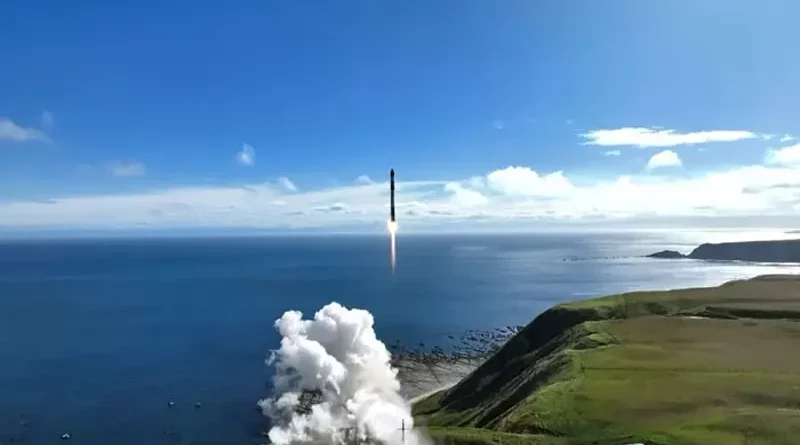Rocket Lab lifts Nasa’s two satellites to study tropical storms
Nasa successfully launched two of its four satellites into low Earth orbit Sunday that is aimed at providing further understanding about weather forecasting and the evolution of tropical storms, reported CBS News.
The two toast-sized satellites — known as CubeSats — were launched with the help of California-based aerospace company Rocket Lab.
Ben Kim, a programme executive with Nasa’s Earth Science Division, said: “The threat to our friends and neighbours is real and repeats every year.”
“The TROPICS mission aims to improve our scientific understanding by obtaining microwave observations that allow us to see the inner structure of these storms approximately hourly,” he said
The satellites were launched from Rocket Lab’s picturesque Mahia, New Zealand.
Kim further added: “These observations will complement the existing weather satellites, and ultimately then can be tied to the broader understanding of the entire earth system.”
Time-Resolved Observations of Precipitation Structure and Storm Intensity with a Constellation of Smallsats or (TROPICS).
These CubeSats are not a substitute for large satellites however, there are the lost cost missions with complementary science and much shorter development times.
Kim said: “We utilise a balanced mission portfolio that ranges from the really large observatories, like Landsat 9 at around 6,000 pounds, down to the very smallest of satellites like TROPICS at around 12 pounds.”
“This mix within our portfolio allows us to maximise the science per taxpayer dollar, and thus do more science than if we only focus on the large missions”, added Kim.
There are a total of six TROPICS CubeSats planned out of which two were lost last year when the Astra rocket failed to lift up the sky.
The for remaining four CubeSats, Nasa approached Rocket Lab Electron in order to lift their satellites into orbit.
The 59-foot-tall carbon-composite rocket’s nine 3D-printed engines lifted the booster out of the surface of the earth before falling away and handing off to the rocket’s second stage.
The launch was Rocket Lab’s 36th Electron launch and its 16th successful flight in a row.
The aerospace company will launch the remaining TROPICS 5 and 6 before the end of the month.
TROPICS principal investigator at MIT’s Lincoln Laboratory William Blackwell said that getting microwave observations of growing storms at the rapid revisit rates the CubeSats provide, is critical to understanding the development and behaviour of tropical storms.
“We’ve been making [such observations] for 40 years from space, but the thing that has eluded us is this ability to capture the dynamics of the storm,” he said.

